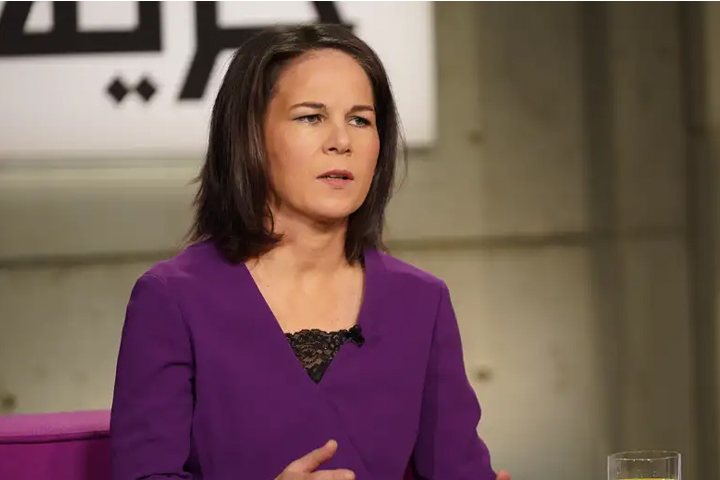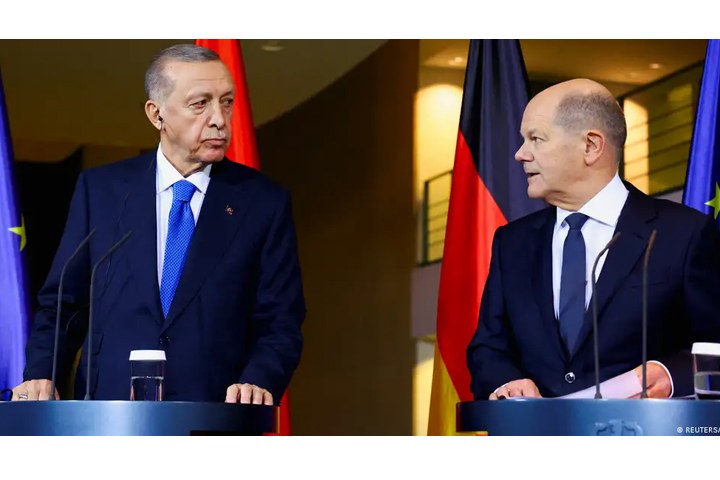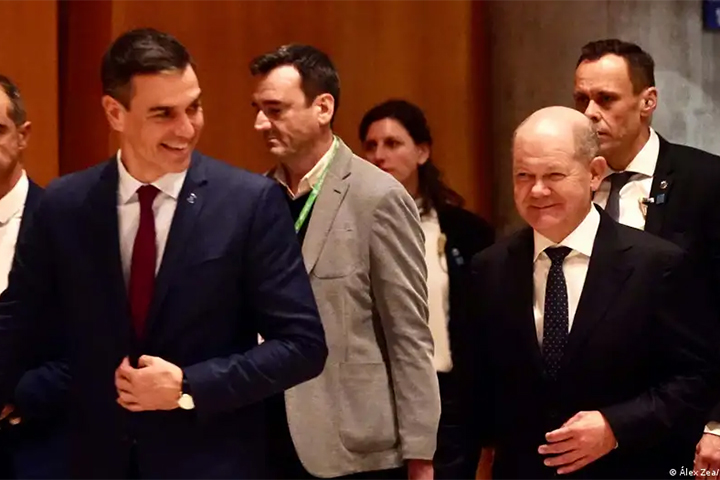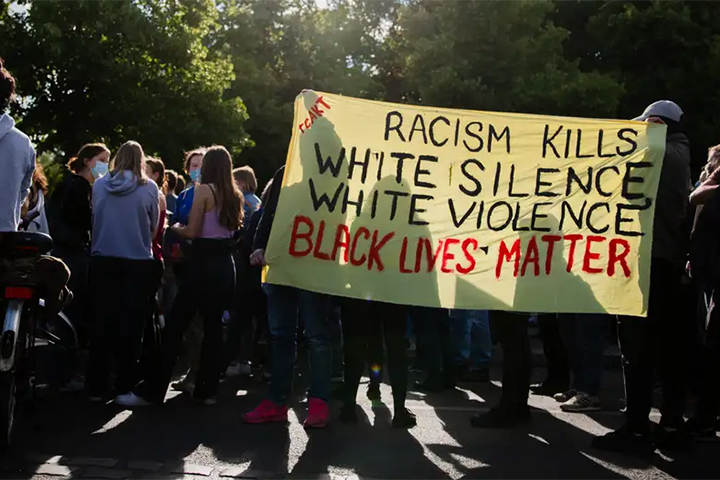German Chancellor Olaf Scholz is addressing lawmakers about his coalition government's budget crisis. Ministers must fill a hole in state finances after a bombshell Constitutional Court ruling on borrowing.
Germany's lower house of parliament, the Bundestag, was set to debate the budget shortfall on Tuesday after Chancellor Olaf Scholz's statement to lawmakers.
A gap in government finances emerged after the Constitutional Court earlier this month ruled that unused pandemic funds could not be repurposed for climate and green industry projects.
The court said the state could not rechannel reserve emergency loans for separate post-pandemic projects because this did not meet the constitutional requirements for emergency borrowing — blowing a hole in the government's budget.
Scholz said the ruling would have an impact on Germany's various levels of government from this time on.
"This ruling creates a new reality — for the federal Government and for all current and future governments, federal and state. A reality that, however, it makes important and widely shared goals more difficult for our country to achieve."
The German government's three-way ruling coalition on Monday said it would temporarily extend the lifting of constitutionally enshrined restrictions on borrowing as part of a supplementary budget.
The plan included a credit of around €45 billion ($49 billion) to cover funds that had already been spent in 2023. The budget must still be approved by the Bundestag.
Why is the budget revision necessary?
The Karlsruhe-based Constitutional Court's ruling effectively vetoed government plans to funnel €60 billion that was borrowed for a pandemic fund into the Climate and Transformation Fund (KTF).
The gap in finances has posed one of the biggest challenges so far for the coalition of Chancellor Olaf Scholz's center-left Social Democrats, the environmentalist Green Party, and the business-focused Free Democrats.
It had already been expected that the 2023 supplementary budget would see Germany suspend the debt brake for a fourth year in succession.
The debt brake is part of the German constitution and limits the federal government's structural net borrowing to 0.35% of gross domestic product. It was first adopted in 2009 after the financial crash.
The brake was suspended from 2020 to 2022 during the pandemic and energy crisis but was set to come back into force this year.
Finance Minister Christian Lindner last week said he would declare 2023 a year of emergency so as to put the existing spending plans on a "firm constitutional footing."
The court's decision has also cast doubt over the government's 2024 budget, which Scholz on Friday promised would also be finalized by the end of this year.
- Dhaka Thu, 09 MAY 2024,

 Live Tv
Live Tv













